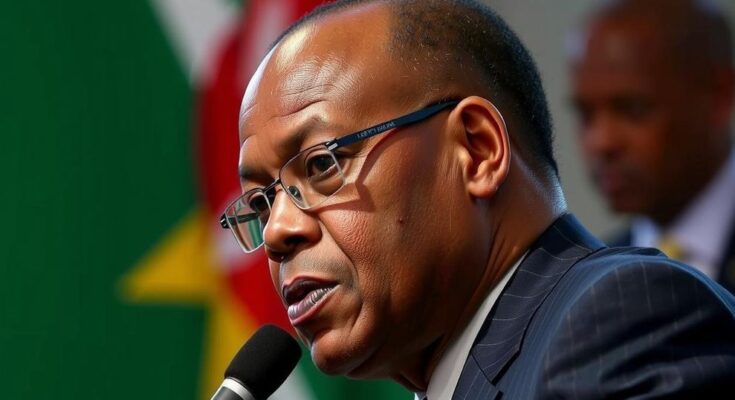Kenya’s Deputy President Rigathi Gachagua was impeached on October 17, 2024, after the Senate upheld five of eleven charges against him. The National Assembly’s vote to impeach was overwhelmingly in favor, leading to significant political repercussions amid mounting tensions within the government. Gachagua, absent due to health issues during the Senate proceedings, plans to challenge the impeachment legally as President Ruto seeks a new deputy within two weeks.
On October 17, 2024, Kenya’s Deputy President Rigathi Gachagua was impeached by the Senate, marking a significant moment in the nation’s political landscape. The Senate found him guilty on five out of eleven charges, which included threatening judges and engaging in ethnically divisive politics. This impeachment followed an overwhelming vote from the National Assembly, where 282 members supported removal from office, exceeding the required two-thirds majority. Gachagua’s absence during the Senate’s proceedings, due to hospitalization for chest pains, sparked controversy and led to his legal team walking out of the hearing. This event signals a profound shift in Kenyan politics as Gachagua becomes the first Deputy President to be removed via impeachment since the implementation of the revised constitution in 2010. His tumultuous relationship with President William Ruto, with whom he previously worked closely to secure election victories, has escalated over accusations of sidelining and internal political conflict. Although Gachagua has claimed that the charges against him are politically motivated, he faces the possibility of legal challenges following the parliamentary process. With Ruto tasked to appoint a new deputy within two weeks, speculation regarding potential successors, including several prominent politicians, has emerged.
The impeachment of Rigathi Gachagua reflects underlying political tensions in Kenya, stemming from conflicts within the ruling party and criticisms of the leadership. Gachagua, known for his influence in the Mount Kenya region, played a pivotal role in President William Ruto’s electoral success in 2022. However, recent accusations of divisive political tactics and a perceived alignment with youth-led protests against the government have led to his downfall. The political environment has been intensified by popular discontent arising from tax hikes and governance issues, impacting the administration’s stability. Gachagua’s impeachment represents not only a personal political crisis but also broader implications for governance and accountability within the nation’s political framework.
The impeachment of Deputy President Rigathi Gachagua stands as a crucial event in Kenyan politics, showcasing the complexities of political alliances and the consequences of alleged misconduct in office. This unprecedented action against a sitting deputy president raises questions about political stability in Kenya and underscores the importance of accountability within the government. As the nation watches how President Ruto will respond to this significant shift, the political landscape remains dynamic and uncertain, with the potential for further developments as Gachagua explores legal avenues against his impeachment and the selection of a new deputy unfolds.
Original Source: www.jamaicaobserver.com




